During the Thirty Years’ War, a Swedish general wrote an encrypted letter to a German Major. Can a reader decipher this message?
I’m looking forward to HistoCrypt 2019, which will take place in Mons, Belgium. Especially, I’m looking forward to the talk I will give. It’s about Ernest Rinzi’s journal, one of the most unusual cryptograms I have ever seen. It was solved by Tony Gaffney, who is the co-author of the paper I wrote for the conference proceedings. To my regret, Tony won’t attend HistoCrypt, but he is listed as co-speaker in the program.
The letter
Tony recently forwarded me an unsolved encrypted letter from the 17th century he had received from Philip Neal. Philip is a very knowledgeable Voynich Manuscript expert, who operates a highly recommendable Voynich manuscript web page. He has a B.A. in Classics and Modern Languages from Oxford University, which enables him to read old letters, including the ones from the 17th century that are assumed to mention the Voynich manuscript.
The letter this article is about has no relationship to the Voynich manuscript. It was written by a general Baner (probably Swedish field marshal Johan Banér (1596-1641)) in 1640, during the Thirty Years’ War. The recipient is a Major Stallhausen, about whom I couldn’t find anything online. Here is the first of two pages:
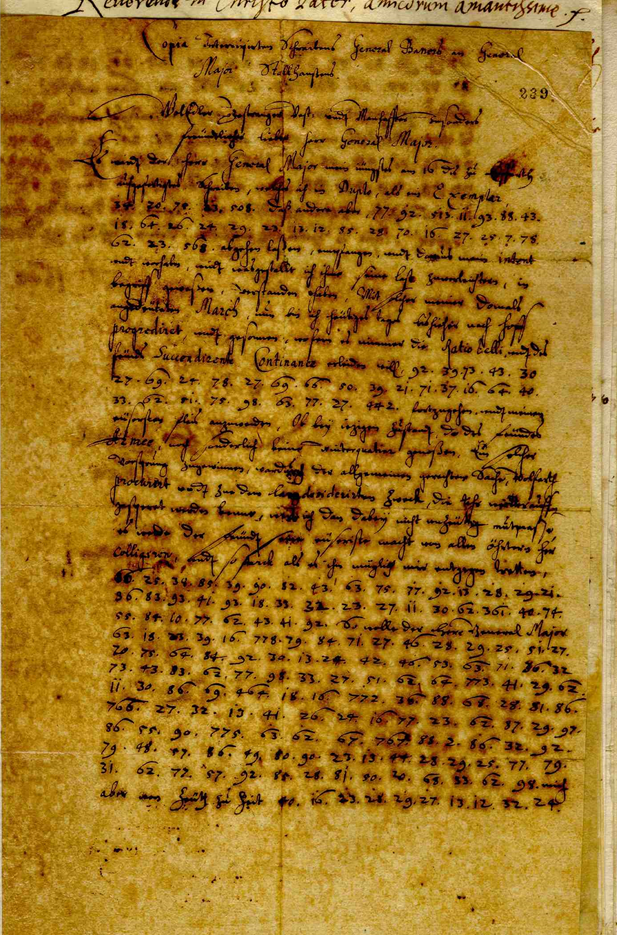
Source: Copia litterarum interceptarum Generalis Baners Hoff in Si-lesia 29 Decembr. 1640 [ 568 239r , 568 239v , see also 239r , 239v ]
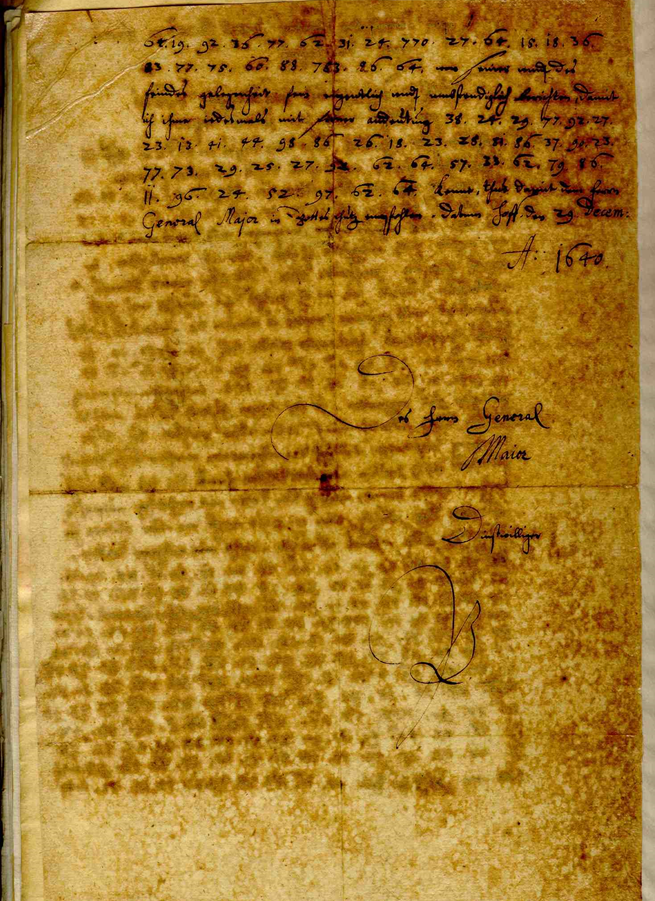
Source: Copia litterarum interceptarum Generalis Baners Hoff in Si-lesia 29 Decembr. 1640 [ 568 239r , 568 239v , see also 239r , 239v ]
Transcription
Here’s a transcription of the letter made by Philip Neal:
Copia Intercipirtes Schreibens General Baners an General
Major Stallhausens
Woledler Bestrenger Vast: undt Mannhafter engsanders
freundlicher lieber her General Major
Es wirdt der herr General Major mein iungstes am 16 des zu Erfurth
ausgefertigtes schreiben, welches ich im Duplo, als im Exemplar
34 20 78 83 508 das andere aber 77 92 513 11 93 88 43
18 64 26 24 29 23 13 12 85 28 70 16 27 25 7 78
62 23 568 abgehen lassen, empfangen, undt daraus mein intent
undt vorhaben, undt wasgestelle ich ihm, seine last zuverleichtern in
begriff genossen, verstanden haben. Mit solcher meiner domals
angedeuteten March, nun bin ich heutiges tages bis hieher nach hoff
progredirt, undt gesonnen, woher es nimmer die Ratio Belli*, undt des
feinds Succendirente Continance erleiden will, 92 39 73 43 30
27 69 24 78 27 69 66 50 39 21 71 37 16 64 40
33 62 51 75 98 63 77 27 442 loszugehen, undt meinen
aeussersten fleis anzuwenden. Ob bey iczigem zustand do des feindes
Armee, noch sonderlich keine winterquartier genossen, Ein solcher
vorsprung zugewinnen, wodurch die allgemeinen gerechten sachen, wolfarth
procurirt undt zua dem lang desiderirten zweck, die tohr wider auffen
gesperrt werden kann, undt ich das dabey nicht unzuchtig mutmassen
es werde der feindt seine aeusserste macht van allen oefters her
colligiren, undt so starck als es ihm muglig mir entgegen leitten
66 25 38 85 39 90 82 43 63 75 77 92 13 28 29 21
36 83 93 41 93 18 33 32 23 27 11 30 62 361 40 74
55 84 10 77 62 43 41 92 So wollt der herr General Major
63 18 23 39 16 778 79 84 71 27 46 28 29 25 51 27
70 75 64 84 92 30 13 24 42 46 53 63 71 86 32
73 43 83 62 77 98 33 27 51 62 64 773 41 29 62
11 30 86 69 464 18 16 772 36 88 68 28 81 86
766 27 32 13 41 26 24 16 77 23 62 87 29 97
86 55 90 775 63 62 67 767 88 2 86 32 92
79 48 57 86 49 80 90 23 13 44 28 29 25 77 79
31 62 77 57 92 85 28 81 90 20 68 33 62 98 mich
aber von zeitt zu zeit 40 16 23 28 29 27 13 32 24
64 19 92 36 77 62 31 24 770 27 64 15 18 36
83 77 75 60 88 783 86 64 wie sein undt des
feindes gelegenheit sein eigentlich undt unschundiglich berichten damit
ich ihnen indas mals mit seiner andeutung 38 24 29 77 92 27
23 13 41 44 98 86 26 18 23 28 81 86 37 90 23
77 73 29 25 27 9? 62 64 57 33 62 79 86
11 96 24 52 97 62 64 kommt thut damit dem herrn
General Major in gottes schutz empfehlen. Datum Hoff den 29 Decem:
A 1640
des herrn General
Maior
Dinstwilliger
B
Deciphering approaches
Frequent readers of this blog will easily recognize with what kind of method this letter was probably encrypted: with a nomenclator. A nomenclator is an encryption method based on a substitution table that replaces each letter of the alphabet and some frequent words with a number (or another character sequence). The following is a very simple example:
A=1
B=2
C=3
…
Z=26
London=27
Paris=28
Rome=29
today=30
tomorrow=31
Using this nomenclator the plaintext WILL TRAVEL FROM LONDON TO PARIS TOMORROW encrypts to:
23 9 12 12 / 20 18 1 21 5 12 / 6 18 15 13 / 27 / 20 15 / 28 / 31
For centuries, nomenclators were by far the most popular encryption method. The following French nomenclator is from the 17th century:
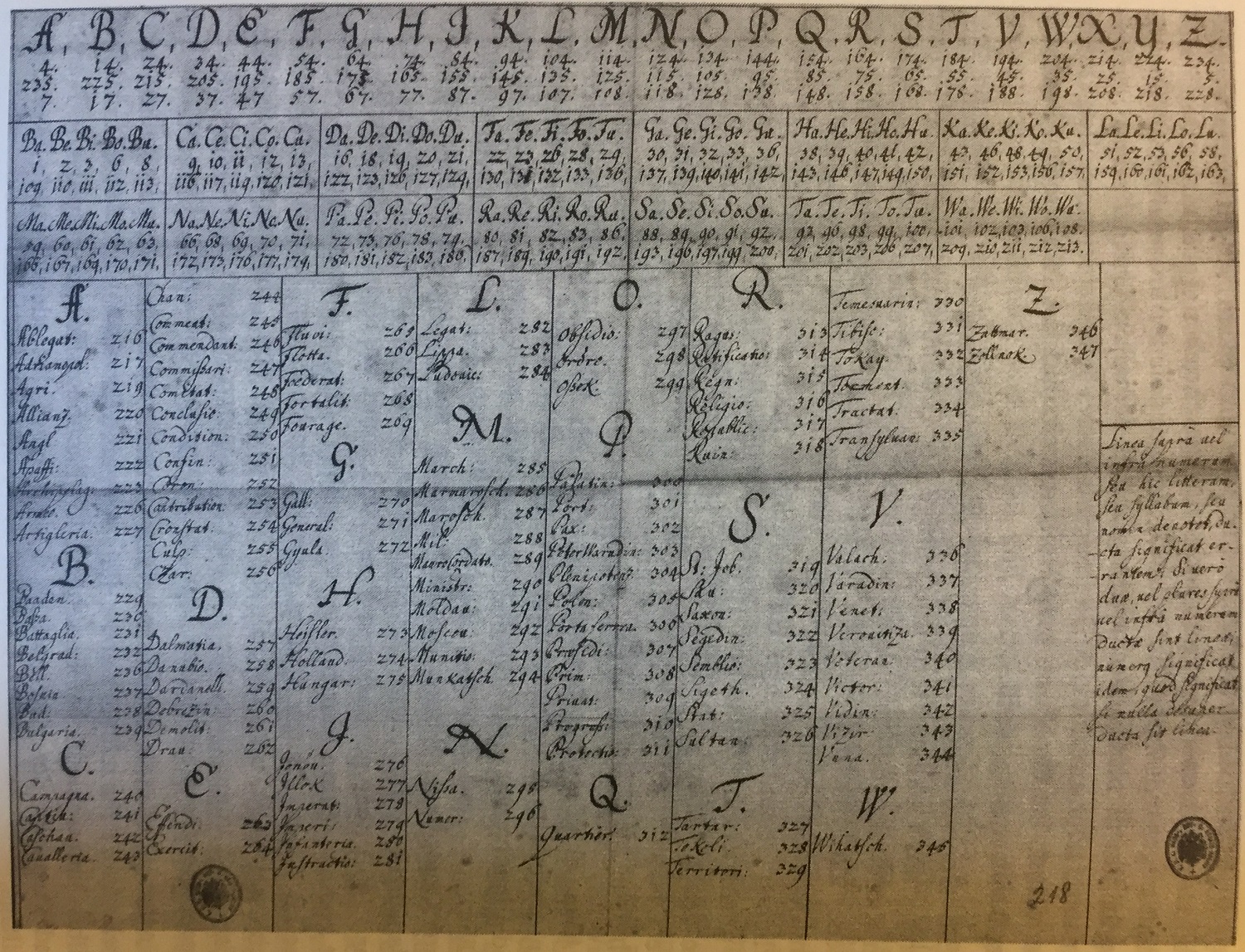
Source: “Briefe durch Feindesland” by Gerhard Kay Birkner in the proceedings of the conference “Geheime Post”
As mentioned many times on this blog, breaking a nomenclator message is far from easy. Most unsolved nomenclator messages I have introduced over the last five years have not been solved by my readers. As far as I know, there is currently no codebreaking expert in the world who specilizes in breaking nomenclators. I hope, this will change some day.
The easiest way to solve a nomenclator message is usually to find a description of the nomenclator used. If this is not possible, there are still ways to break such a message. Many nomenclators were poorly constructed (for instance, two-digit numbers stood for the letters, while three-digit numbers represented words). Very often, weaknesses of this kind can be exploited. The nomenclators of the 17th century were not the best, so the chances are not too bad that the one used here contains weaknesses. If a reader can solve this message, please leave a comment.
Follow @KlausSchmeh
Further reading: Top 50 crypto mystery solved: Thomas Ernst deciphers Fredinand III’s encrypted letters
Linkedin: https://www.linkedin.com/groups/13501820
Facebook: https://www.facebook.com/groups/763282653806483/

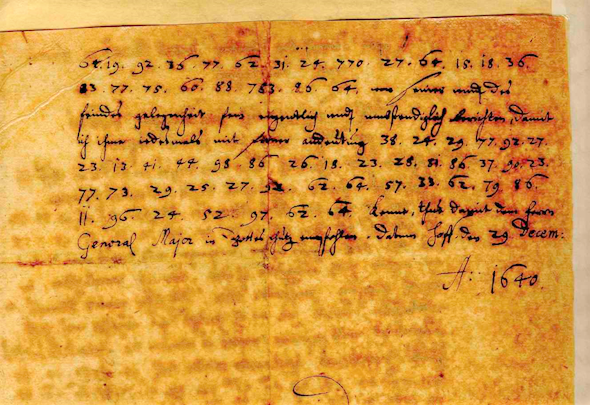
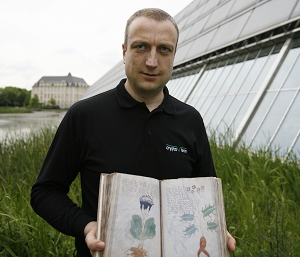
Kommentare (5)